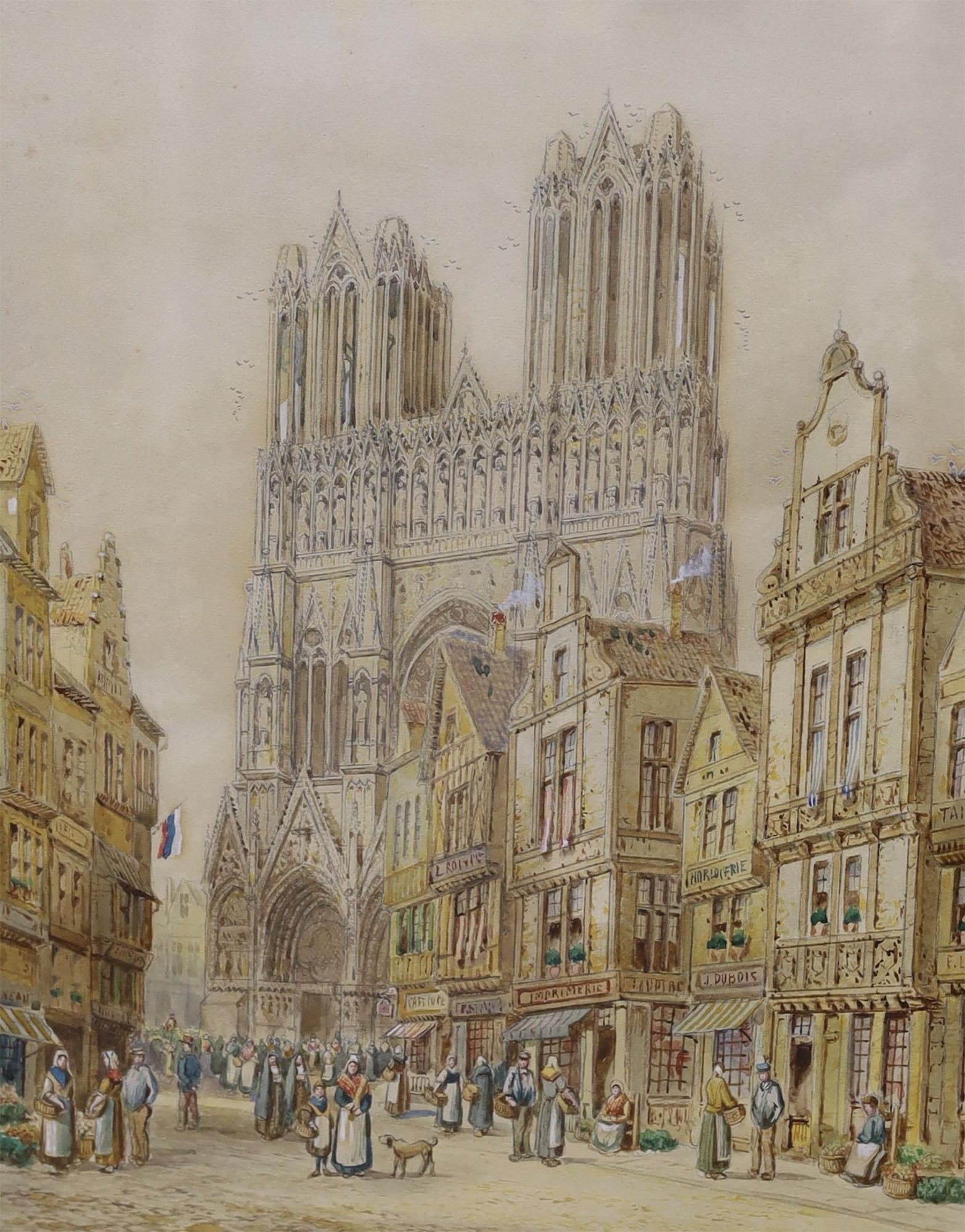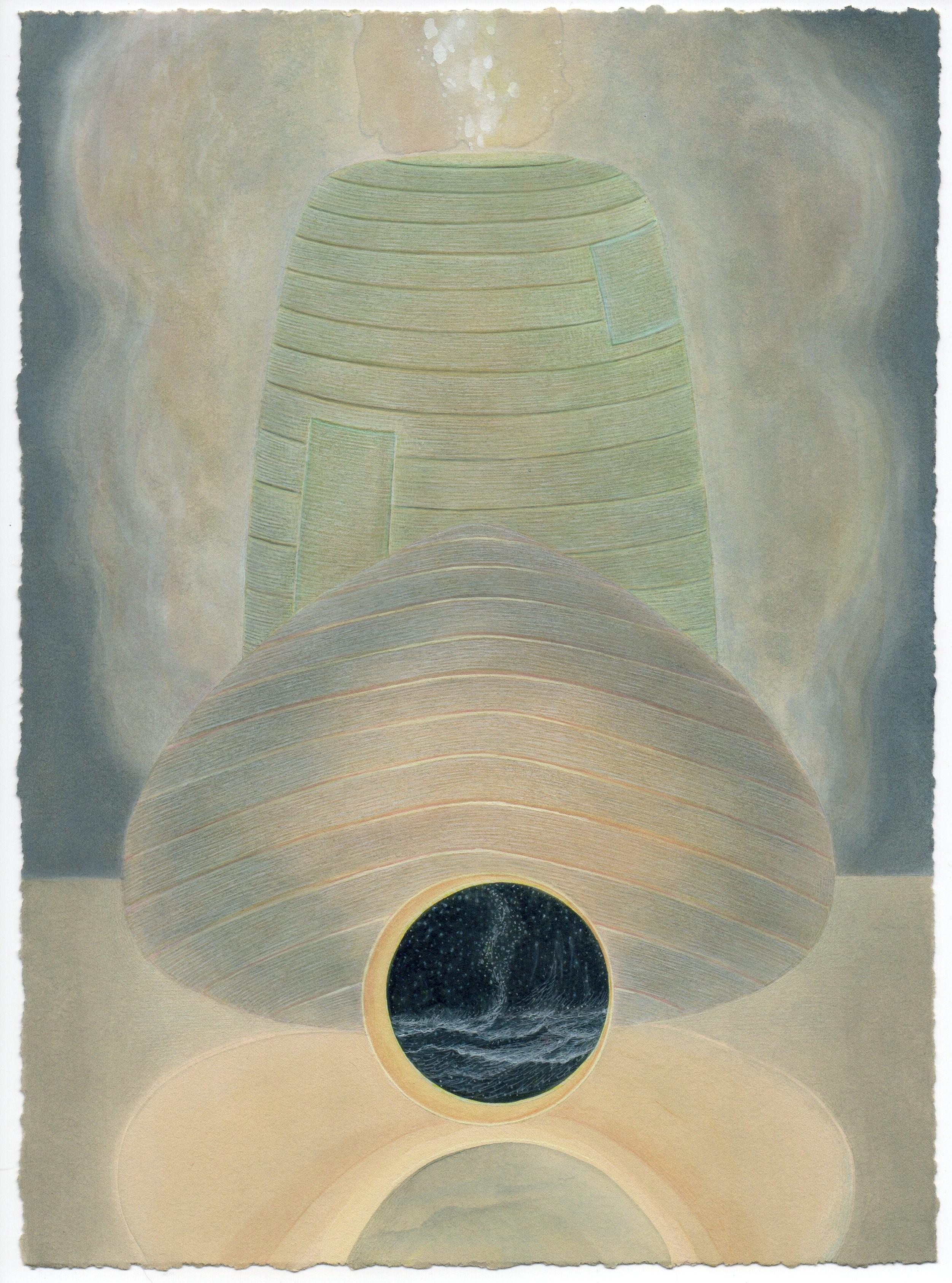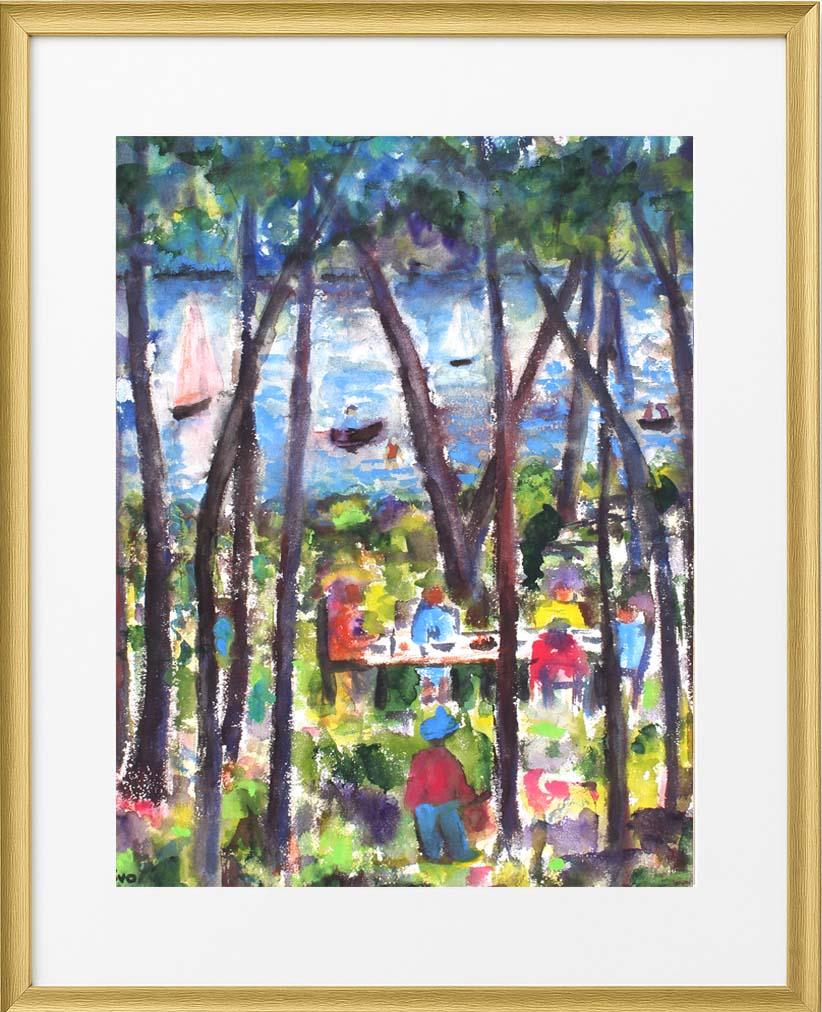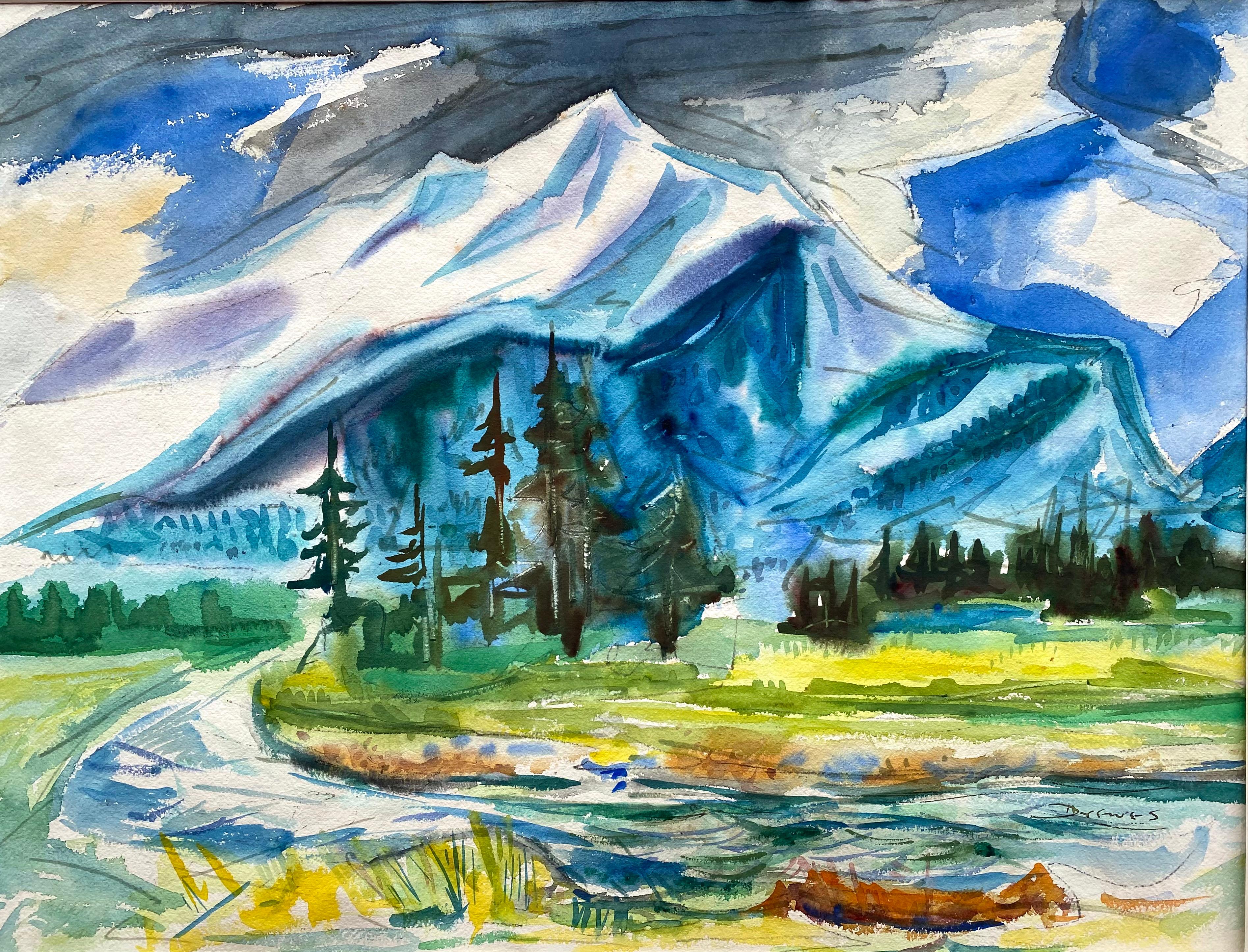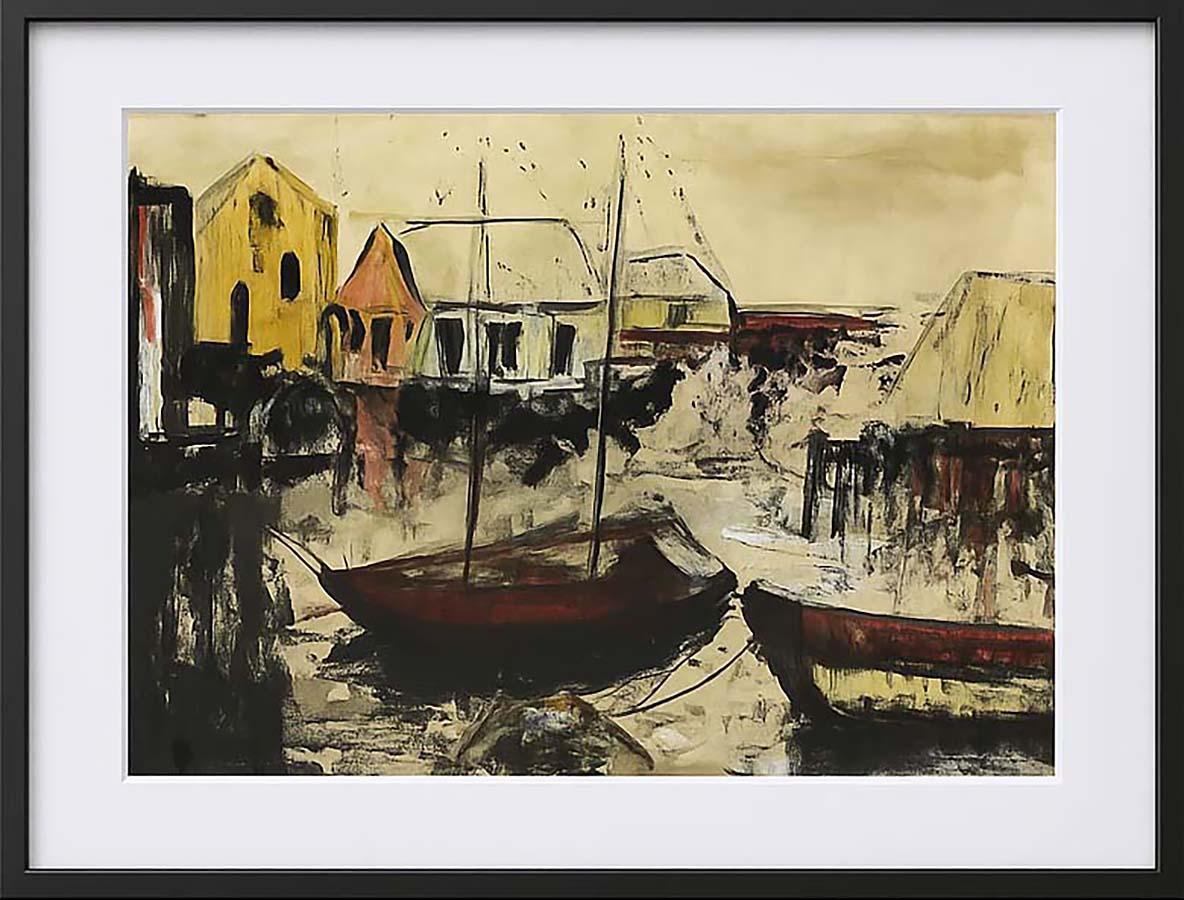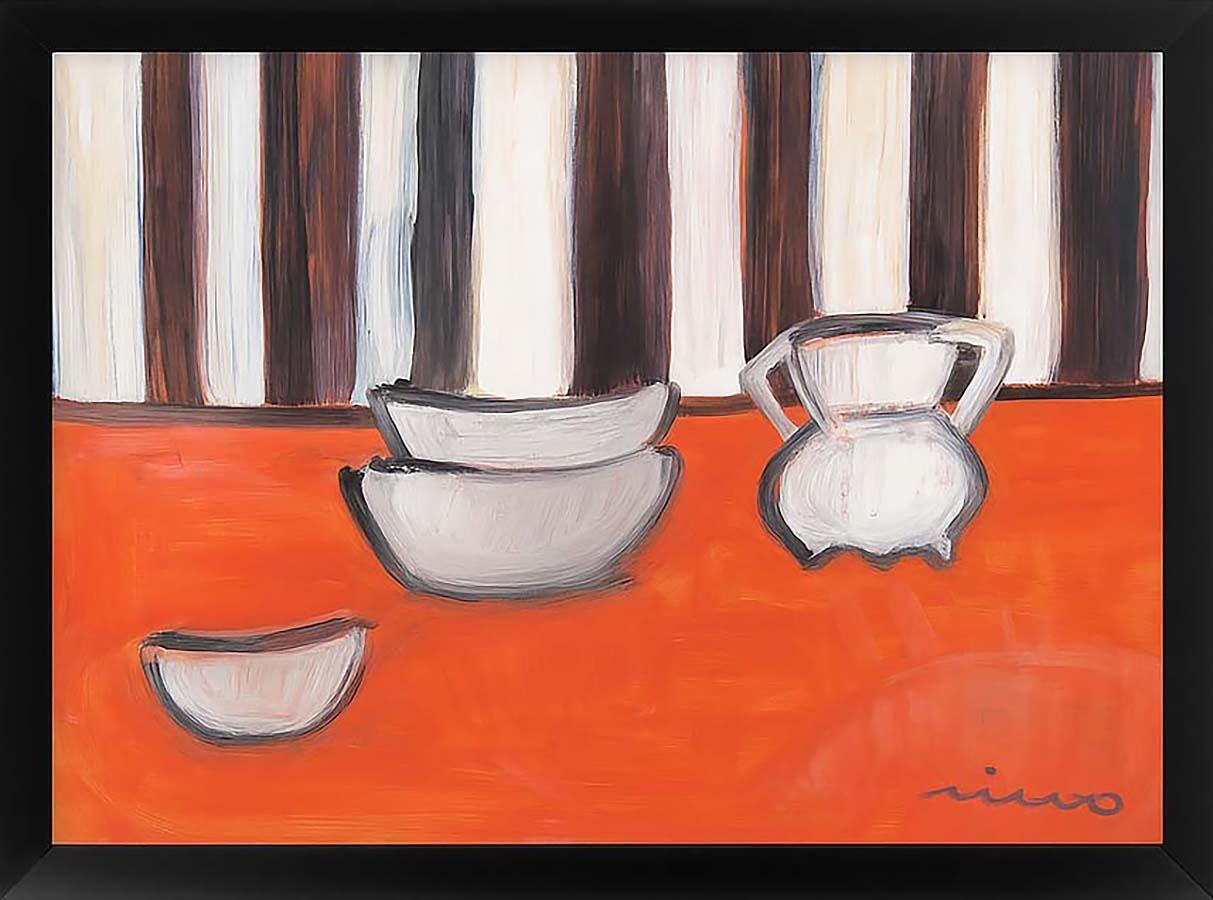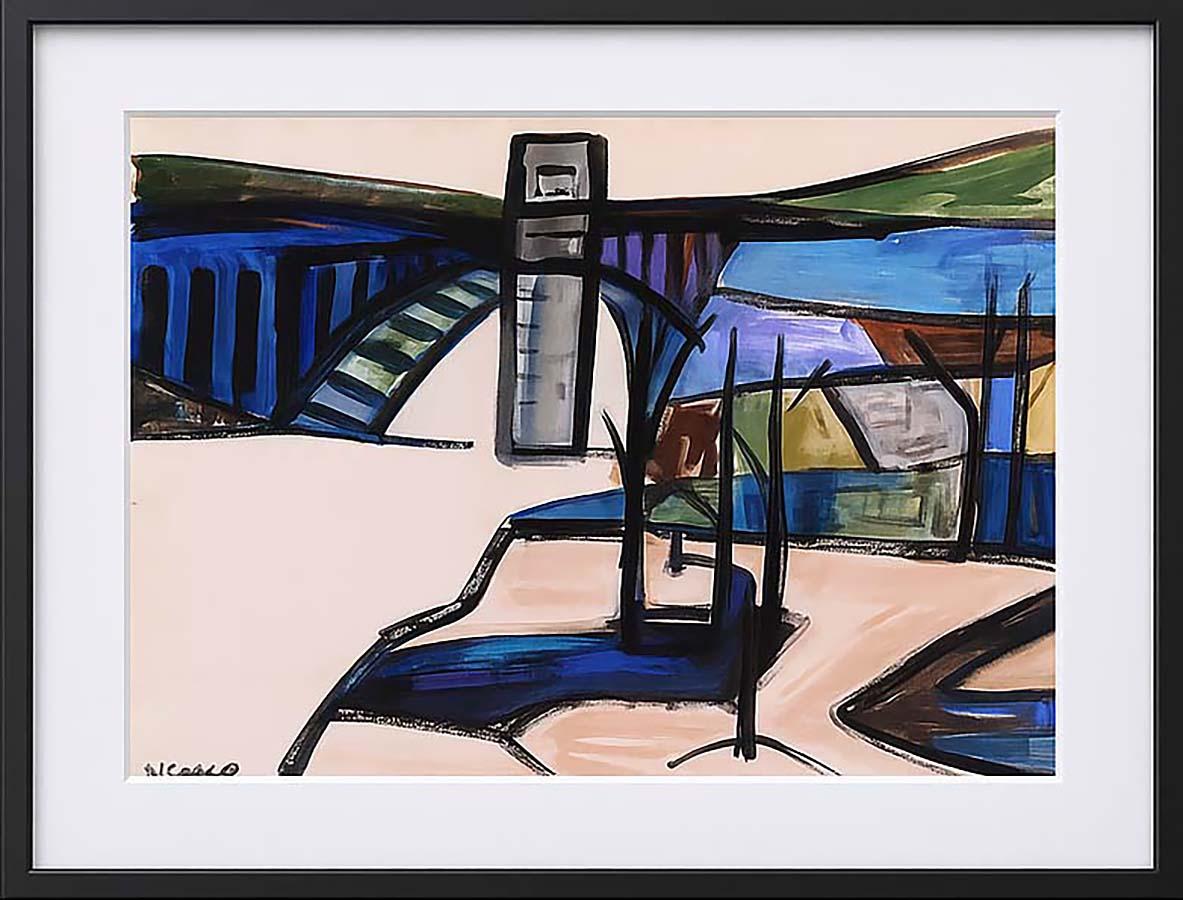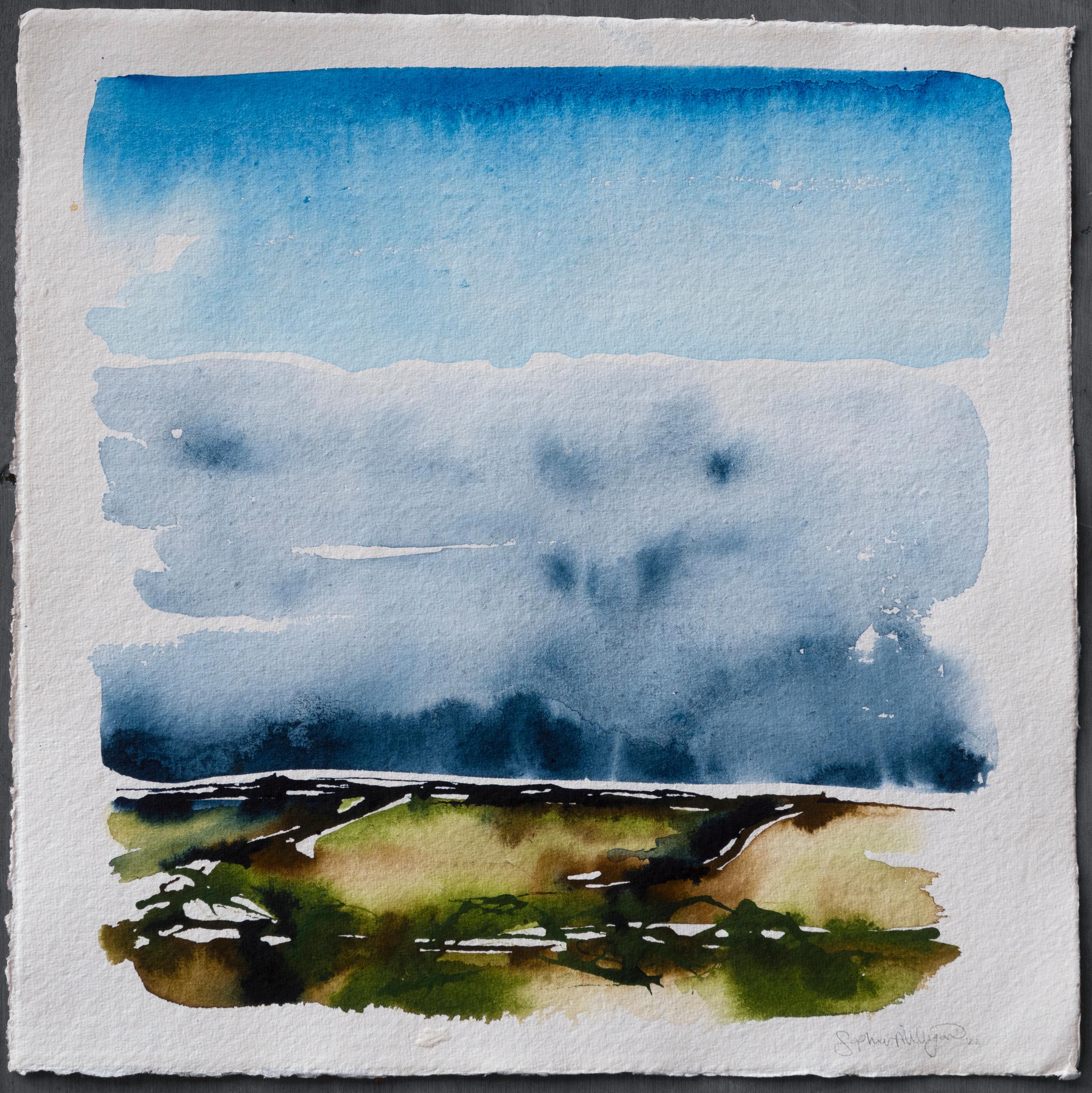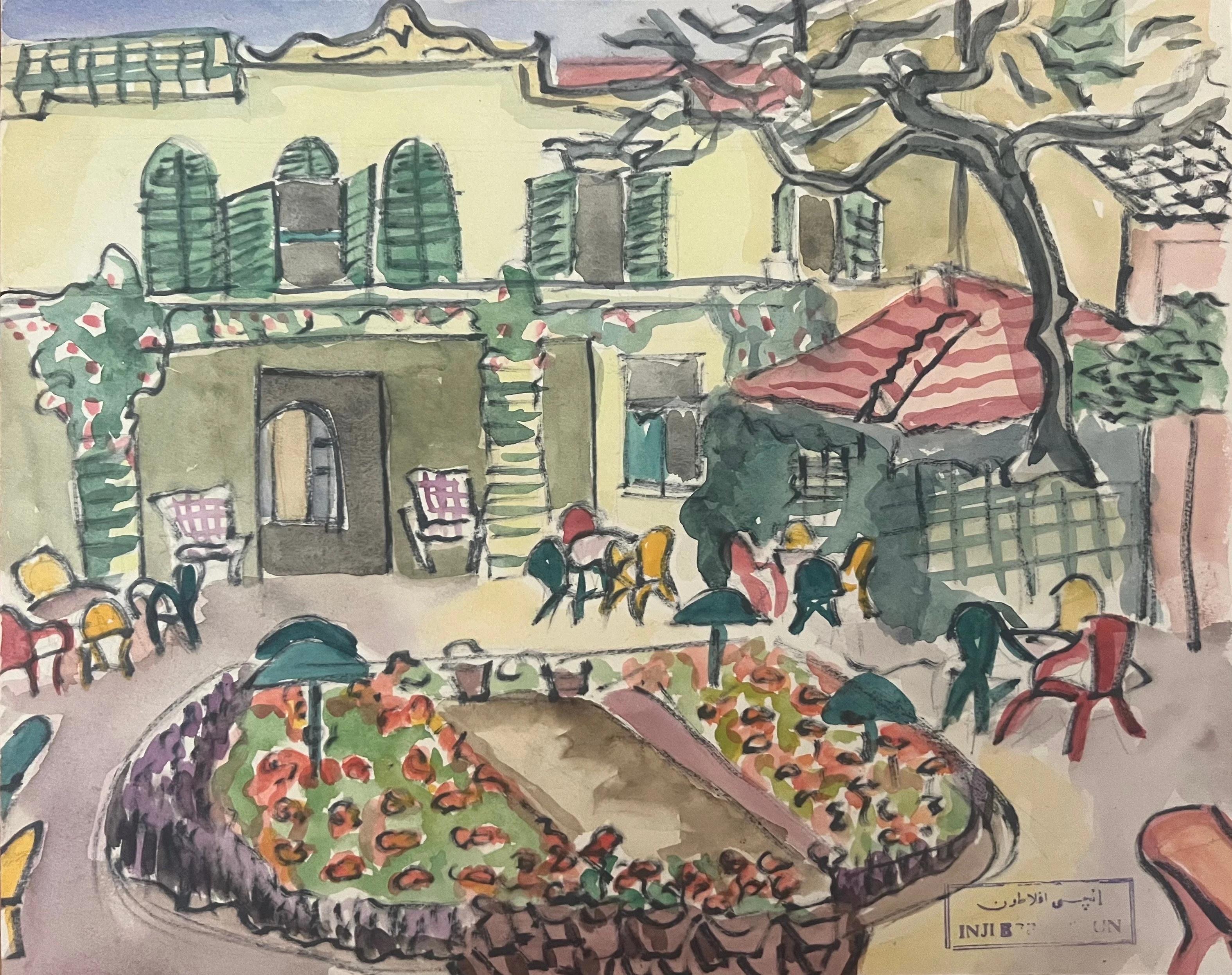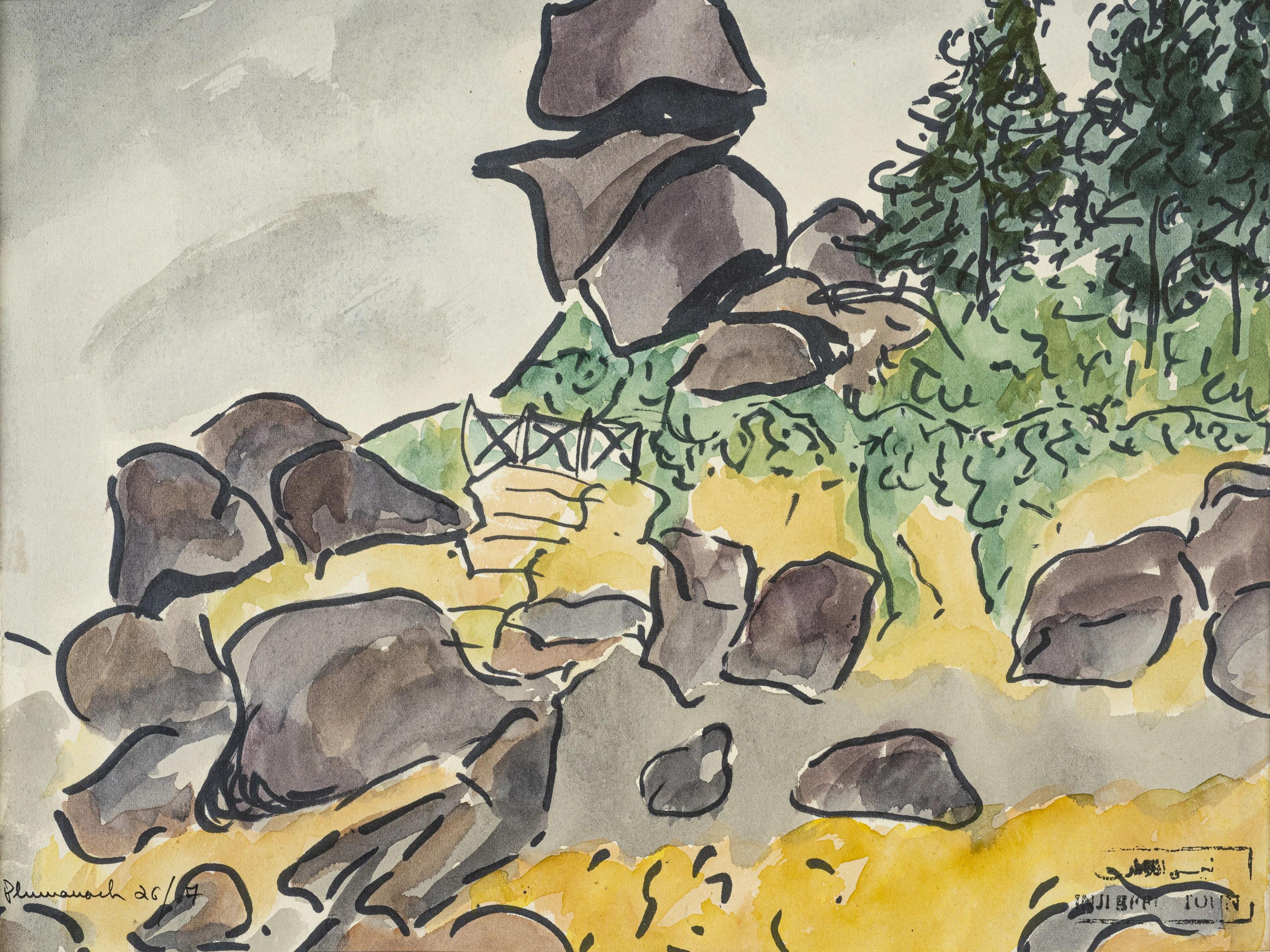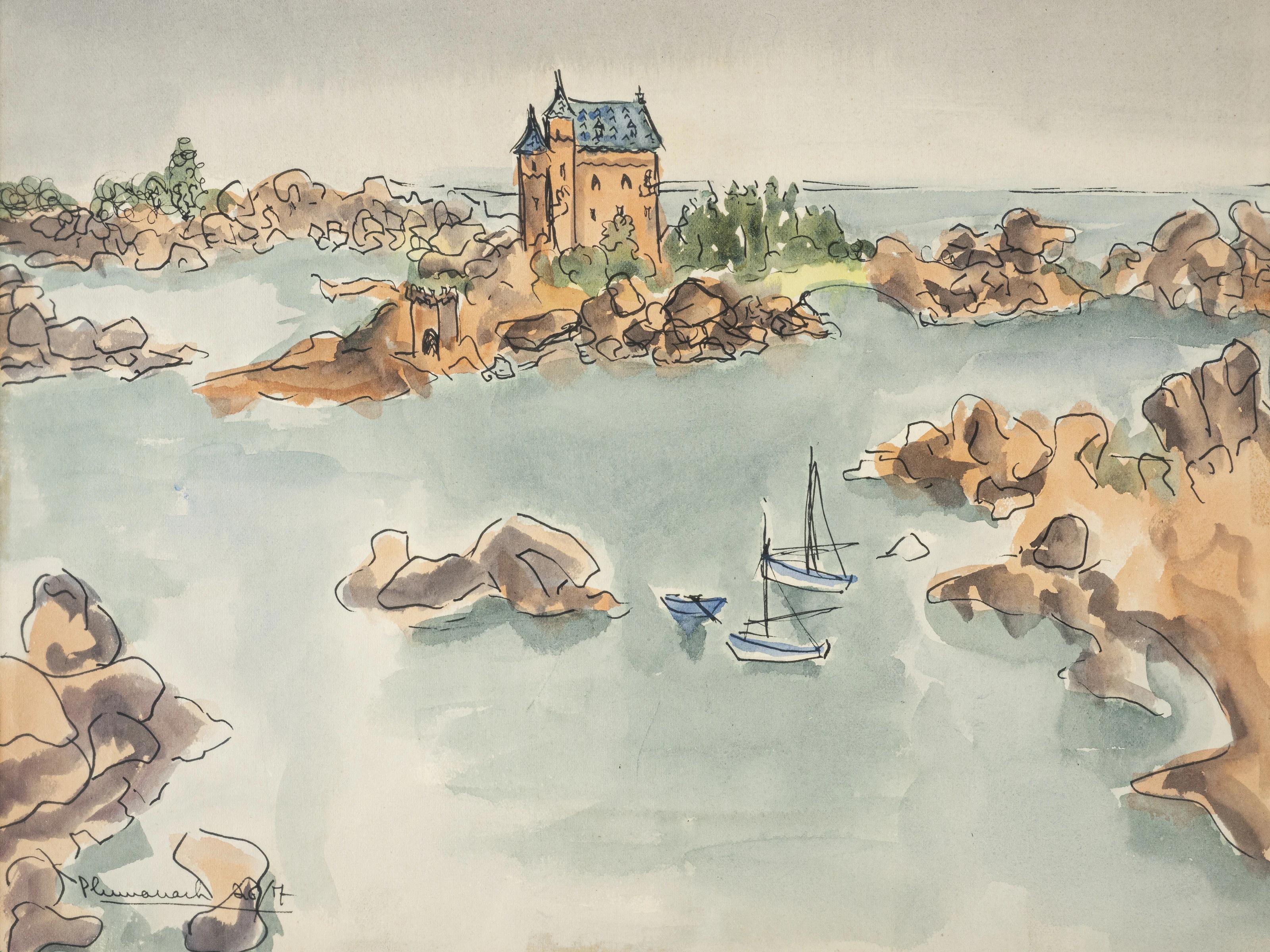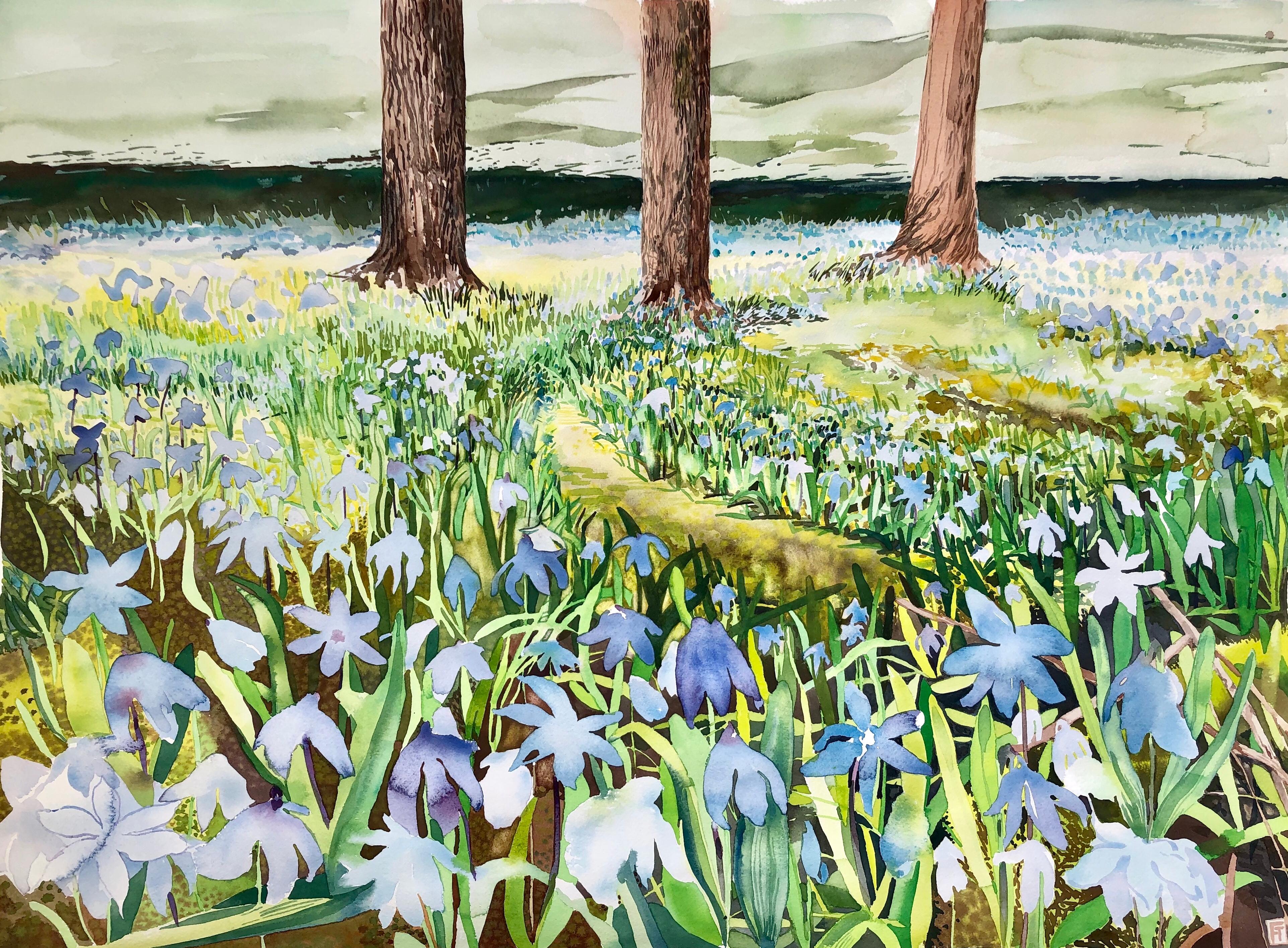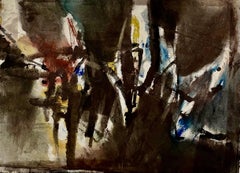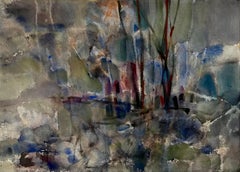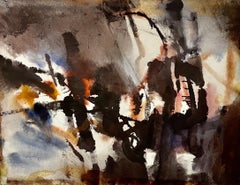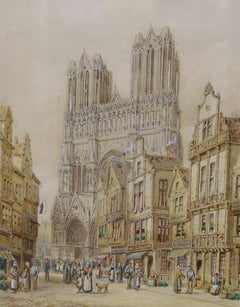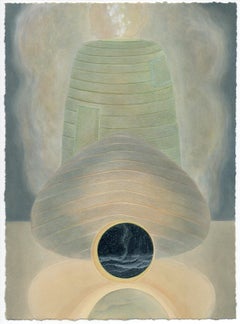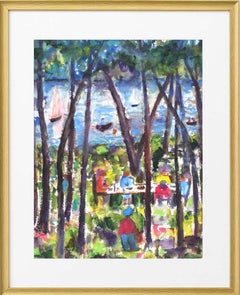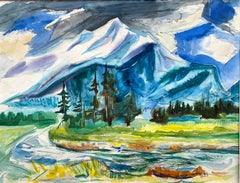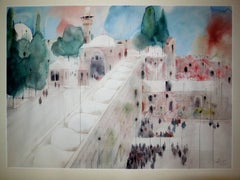
Western Wall, Jerusalem Watercolor
View Similar Items
Want more images or videos?
Request additional images or videos from the seller
1 of 7
Shmuel KatzWestern Wall, Jerusalem Watercolor
Price:$1,250
$2,500List Price
About the Item
- Creator:Shmuel Katz (1926 - 2010, Austrian, Israeli)
- Dimensions:Height: 24 in (60.96 cm)Width: 32 in (81.28 cm)
- Medium:
- Period:
- Condition:matted not framed.
- Gallery Location:Surfside, FL
- Reference Number:1stDibs: LU382128636
About the Seller
4.9
Platinum Seller
Premium sellers with a 4.7+ rating and 24-hour response times
Established in 1995
1stDibs seller since 2014
1,794 sales on 1stDibs
Authenticity Guarantee
In the unlikely event there’s an issue with an item’s authenticity, contact us within 1 year for a full refund. DetailsMoney-Back Guarantee
If your item is not as described, is damaged in transit, or does not arrive, contact us within 7 days for a full refund. Details24-Hour Cancellation
You have a 24-hour grace period in which to reconsider your purchase, with no questions asked.Vetted Professional Sellers
Our world-class sellers must adhere to strict standards for service and quality, maintaining the integrity of our listings.Price-Match Guarantee
If you find that a seller listed the same item for a lower price elsewhere, we’ll match it.Trusted Global Delivery
Our best-in-class carrier network provides specialized shipping options worldwide, including custom delivery.More From This Seller
View AllWestern Wall, Jerusalem Watercolor
Located in Surfside, FL
Beautiful painting of the Kotel Hamaravi The Western (Wailing) Wall in Jerusalem, Israel. sight is 27X19 inches.
Shmuel Katz (Hebrew: שמואל כ"ץ) (August 18, 1926 – March 26, 2010) ...
Category
20th Century Landscape Drawings and Watercolors
Materials
Watercolor, Archival Paper
Modernist Abstract Expressionist Watercolor Painting Bauhaus Weimar Pawel Kontny
By Pawel Kontny
Located in Surfside, FL
Abstract watercolor composition bearing the influence of the earlier color-block compositions of Paul Klee.
Pawel August Kontny, (Polish-German-American artist) He was born in Laurahuette, Poland, in 1923, the son of a wealthy pastry shop owner. In 1939 he began studying architecture in Breslau where he was introduced to the European masters and to the work of some of the German Expressionists, soon afterward banned as "degenerate artists" and removed from museums throughout Germany by the Nazi regime. His studies were interrupted by World War II. Drafted into the German army, traveling in many countries as a soldier, he sketched various landscapes but in 1945, he was captured and held as a prisoner of war in Italy. After the war, he studied at the Union of Nuremberg Architects to help design buildings to replace ones destroyed in the war. He recorded his impressions of the local population and the landscapes through his watercolors and drawings. Pawel Kontny thereafter moved to Nuremberg, Germany, becoming a member of the Union of Nuremberg Architects and helping to rebuild the city's historic center. He soon decided to concentrate on his professional art career. He married Irmgard Laurer, a dancer with the Nuremberg Opera. Pavel Kontny 's career as an artist was launched with his participation in an all German exhibition, held at the Dusseldorf Museum in 1952. He held one-man shows in Germany, Switzerland and the United States. During his trip to the United States in 1960, Kontny became instantly enamored with Colorado, and decided to relocate to Cherry Hills with his wife and two children. He quickly established himself in the local art community, being affiliated for a time with Denver Art Galleries and Saks Galleries. His subject matter became the Southwest. During this time he received the Prestigious Gold Medal of the Art Academy of Rome. His extensive travel provided material for the paintings he did using his hallmark marble dust technique. he also worked equally in pastel, watercolor, charcoal and pencil-and-ink. in a style which merged abstraction and realist styles, influenced by Abstract Expressionist painting and South Western American landscapes. This one bears the influence of Sam Francis. In the early 1960s he was one of only a few European-born professional artists in the state, a select group that included Herbert Bayer (1900-1985), a member of the prewar Bauhaus in Weimar and Dessau, Germany, and Roland Detre...
Category
20th Century American Modern Abstract Drawings and Watercolors
Materials
Watercolor, Archival Paper
Modernist Abstract Expressionist Watercolor Painting Bauhaus Weimar Pawel Kontny
By Pawel Kontny
Located in Surfside, FL
Abstract watercolor composition bearing the influence of the earlier color-block compositions of Paul Klee.
Pawel August Kontny, (Polish-German-American artist) He was born in Laurahuette, Poland, in 1923, the son of a wealthy pastry shop owner. In 1939 he began studying architecture in Breslau where he was introduced to the European masters and to the work of some of the German Expressionists, soon afterward banned as "degenerate artists" and removed from museums throughout Germany by the Nazi regime. His studies were interrupted by World War II. Drafted into the German army, traveling in many countries as a soldier, he sketched various landscapes but in 1945, he was captured and held as a prisoner of war in Italy. After the war, he studied at the Union of Nuremberg Architects to help design buildings to replace ones destroyed in the war. He recorded his impressions of the local population and the landscapes through his watercolors and drawings. Pawel Kontny thereafter moved to Nuremberg, Germany, becoming a member of the Union of Nuremberg Architects and helping to rebuild the city's historic center. He soon decided to concentrate on his professional art career. He married Irmgard Laurer, a dancer with the Nuremberg Opera. Pavel Kontny 's career as an artist was launched with his participation in an all German exhibition, held at the Dusseldorf Museum in 1952. He held one-man shows in Germany, Switzerland and the United States. During his trip to the United States in 1960, Kontny became instantly enamored with Colorado, and decided to relocate to Cherry Hills with his wife and two children. He quickly established himself in the local art community, being affiliated for a time with Denver Art Galleries and Saks Galleries. His subject matter became the Southwest. During this time he received the Prestigious Gold Medal of the Art Academy of Rome. His extensive travel provided material for the paintings he did using his hallmark marble dust technique. he also worked equally in pastel, watercolor, charcoal and pencil-and-ink. in a style which merged abstraction and realist styles, influenced by Abstract Expressionist painting and South Western American landscapes. This one bears the influence of Sam Francis. In the early 1960s he was one of only a few European-born professional artists in the state, a select group that included Herbert Bayer (1900-1985), a member of the prewar Bauhaus in Weimar and Dessau, Germany, and Roland Detre...
Category
20th Century American Modern Abstract Drawings and Watercolors
Materials
Watercolor, Archival Paper
Modernist Abstract Expressionist Watercolor Painting Bauhaus Weimar Pawel Kontny
By Pawel Kontny
Located in Surfside, FL
Abstract watercolor composition bearing the influence of the earlier color-block compositions of Paul Klee.
Pawel August Kontny, (Polish-German-American artist) He was born in Laurahuette, Poland, in 1923, the son of a wealthy pastry shop owner. In 1939 he began studying architecture in Breslau where he was introduced to the European masters and to the work of some of the German Expressionists, soon afterward banned as "degenerate artists" and removed from museums throughout Germany by the Nazi regime. His studies were interrupted by World War II. Drafted into the German army, traveling in many countries as a soldier, he sketched various landscapes but in 1945, he was captured and held as a prisoner of war in Italy. After the war, he studied at the Union of Nuremberg Architects to help design buildings to replace ones destroyed in the war. He recorded his impressions of the local population and the landscapes through his watercolors and drawings. Pawel Kontny thereafter moved to Nuremberg, Germany, becoming a member of the Union of Nuremberg Architects and helping to rebuild the city's historic center. He soon decided to concentrate on his professional art career. He married Irmgard Laurer, a dancer with the Nuremberg Opera. Pavel Kontny 's career as an artist was launched with his participation in an all German exhibition, held at the Dusseldorf Museum in 1952. He held one-man shows in Germany, Switzerland and the United States. During his trip to the United States in 1960, Kontny became instantly enamored with Colorado, and decided to relocate to Cherry Hills with his wife and two children. He quickly established himself in the local art community, being affiliated for a time with Denver Art Galleries and Saks Galleries. His subject matter became the Southwest. During this time he received the Prestigious Gold Medal of the Art Academy of Rome. His extensive travel provided material for the paintings he did using his hallmark marble dust technique. he also worked equally in pastel, watercolor, charcoal and pencil-and-ink. in a style which merged abstraction and realist styles, influenced by Abstract Expressionist painting and South Western American landscapes. This one bears the influence of Sam Francis. In the early 1960s he was one of only a few European-born professional artists in the state, a select group that included Herbert Bayer (1900-1985), a member of the prewar Bauhaus in Weimar and Dessau, Germany, and Roland Detre...
Category
20th Century American Modern Abstract Drawings and Watercolors
Materials
Watercolor, Archival Paper
Gouache Watercolor Painting, Nantucket Harbor Boats American Deaf Modernist Art
By Robert Freiman
Located in Surfside, FL
Abstract harbor scene with boats, in bold, vivid colors on heavy mould made paper.
Hand signed and dated, 1980
22 X 30 not frame
Robert Freiman, deaf from birth, was born in March 1917 in New York City. He attended an oral program near his home and later transferred to the Lexington School for the Deaf when he was six. Early in his childhood, his love for drawing, painting and studying became apparent, and as an adult, he continued his studies in New York at the National Academy of Design, Pratt Institute, the Art Students League and the Parsons School of Design. In Paris, France he studied at the Ecole des Beaux Arts. Bob Freiman was especially focused on painting portraits and figures in motion in various mediums, especially the mixed-media combination of watercolor, acrylic and pen. Among his subjects were acrobats, ballet dancers, cyclists and other athletes. He as well focused on abstracts for a time, discovering new media in his works with quick brushwork and expressive movements.
In the latter part of his career, his style became abstract and surreal with images of metaphysical landscapes with architectural elements such as arches, towers, pyramids and castles floating in the air. The famed art critic Pierre Rouve wrote: “It is therefore refreshing to see them revitalized by the colourist wealth and virile handwriting of Robert Freiman, probably the best American water-colorist since John Marin. He worked in Provincetown and Nantucket and regularly exhibited there. He showed at Doll & Richards gallery of Boston alongside John Chetcuti, Lloyd Goodrich, Tod Lindenmuth, William Meyerowitz, Dwight Shepler...
Category
1980s Expressionist Figurative Paintings
Materials
Watercolor, Gouache, Archival Paper
Israeli Modernist Safed Synagogue Interior Folk Art Watercolor Painting
By Zvi Ehrman
Located in Surfside, FL
In this piece the artist choice of colors is vibrant, and there is minimal blending of them. The artist takes a naive, Folk Art approach at rendering the subject simplifying the figu...
Category
Mid-20th Century Modern Landscape Drawings and Watercolors
Materials
Paper, Watercolor
You May Also Like
Rheims Cathedral
By Henri Schäfer
Located in Middletown, NY
Watercolor and gouache on cream wove paper. Signed and titled in watercolor in the lower right image area. Small circular pea-sized damp stain in the top center image area (visible in the are of the sky), and some additional small spots of unobtrusive foxing in the upper left sheet area. Otherwise in very good condition with fresh colors and intricate brushwork.
Henri Schäfer...
Category
1870s Realist Landscape Drawings and Watercolors
Materials
Watercolor, Gouache, Archival Paper
Nest, Highly Detailed Surreal Botanical, Watercolor & Gouache on Paper, Framed
By Christina Haglid
Located in Chicago, IL
This surreal landscape comes from the inner sanctum of artist Christina Haglid. Two paper orbs combine and reveal a portal to another dimension. The artist invites the viewer to take a closer look at nature, to question what is seen and to enter into a newly created world. Meticulous in her execution, Haglid uses watercolor as one might use a colored pencil. Layer upon layer of color is added to achieve this impressively detailed painting. The piece is matted and framed in a simple white frame measuring 20.25 x 16.75.
Christina Haglid
Nest, 2020
watercolor and gouache on paper
11h x 8w in
27.94h x 20.32w cm
CMH051
Artist's Statement
Tiny Sanctuaries
There has always been an intersection between the process of writing and the act of painting in my work. It has somehow been my guide. In the last four years, during the making of this work, that connection intensified as I started writing short stories and flash fiction while taking online classes. I find the process of writing and painting so different in almost every way, but there is something freeing and generative in writing which helps my painting process. Or perhaps it's a reminder of what painting is for me - something intuitive that needs to be trusted. And what they do have in common is a desire to encapsulate and distill a single moment, a story, about the complexity of our emotions and experiences.
At the heart of my work is the recurring depiction of perseverance, strength of will, and a subtle optimism. Symbolically through the objects, precarious situations depict a moment of possible difficulty, often involving the influence of nature. A paper crane left in the snow. A boat nearly filled to the brim, but not submerged and able to drain its own contents carefully. A slide alone at night...
Category
21st Century and Contemporary Contemporary Landscape Drawings and Waterc...
Materials
Watercolor, Gouache, Archival Paper
Watercolor Painting American Modern Impressionist Landscape Framed 1940 colorful
Located in Buffalo, NY
Dorothy Rivo
Lakeside Picnic, c. 1940s–50s
Watercolor on paper
Framed dimensions: 30 in. H × 24 in. W
Presented in a contemporary gold frame with archival mat
Brimming with light an...
Category
1940s American Modern Landscape Drawings and Watercolors
Materials
Watercolor, Archival Paper
“Rocky Mountain Meadow”
By Werner Drewes
Located in Southampton, NY
Original watercolor on archival paper of a Rocky Mountain Meadow by the well known American artist, Werner Drewes. Signed lower right. Titled and dated 1956 on verso of sheet. Con...
Category
1950s American Modern Landscape Drawings and Watercolors
Materials
Watercolor, Archival Paper
$2,800 Sale Price
22% Off
Watercolor Painting American Modern Painting Gloucester Harbor Female Artist
Located in Buffalo, NY
Dorothy Rivo
Gloucester Harbor, c. 1950s
Watercolor and ink on paper
Framed dimensions: 34 in. H × 30 in. W
Contemporary black frame with white archival mat
In Gloucester Harbor, Dorothy Rivo captures the gritty beauty of a working port with expressive brushwork and tonal depth. The scene unfolds in loose washes of ochre, rust, and charcoal, where weathered boats float before a jagged row of fishing sheds and coastal structures rendered in gestural lines.
Rather than striving for topographic precision, Rivo offers a painterly impression of the harbor—moody, atmospheric, and undeniably alive. The smudged foreground, dripping masts, and clouded sky convey both movement and memory, as if the harbor were emerging from a dream or dissolving into one.
Executed in watercolor and ink, this piece shows Rivo's command of mixed media and her deft ability to balance structure with spontaneity. It is a standout example of mid-century American waterfront painting...
Category
1940s American Modern Landscape Drawings and Watercolors
Materials
Archival Ink, Watercolor, Archival Paper
Mid Century Modern Painting American interior table scape Framed Red Stripe B&W
Located in Buffalo, NY
Dorothy Rivo
Still Life with Striped Wall
Acrylic on panel
Framed dimensions: 24 in. H × 26 in. W
Contemporary black frame
Dorothy Rivo’s Still Life with Striped Wall distills the s...
Category
Mid-20th Century American Modern Landscape Drawings and Watercolors
Materials
Watercolor, Archival Paper
